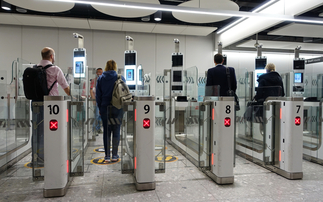Over three-quarters of IT leaders believe in moving Financial and Human Capital Management applications to the cloud, according to a new report.
Computing Research found that 77 percent of respondents in a survey of 150 technology decision-makers across a diverse mix of UK enterprises see multiple benefits in shifting these business functions into a hosted environment.
The surveyed businesses included medium and large organisations in sectors such as professional services, property, law, accountancy, technology, manufacturing, engineering, and pharmaceuticals.
Main motivations
For over 81 percent of respondents, the seamless availability of new features and application capabilities is either a major or significant motivation for moving into the cloud.
Scalability was cited by just under 80 percent of respondents; agility and competitive advantage by 74 percent; IT cost reductions by 73 percent; an improved working environment for staff by 70 percent; greater cost predictability by 68 percent; and the performance and proximity of applications by 67 percent.
Also listed as important was the on-demand availability of new artificial intelligence (AI) and automation abilities, cited by 64 percent of IT leaders and promising a future of improved data analysis, predictive ability, and efficiency.
Complexity & compliance
But despite the many advantages of moving business functions such as Payments, Payroll, Accounting, and HCM into the cloud - alongside Business Intelligence, Customer Experience systems, and Enterprise Resource Planning (ERP) - senior IT professionals have concerns about the practical challenges. In some cases these are dissuading them from making the move.
Forty-two percent of respondents said that migration complexity is stopping them moving either some or all back-office functions to a cloud provider, with 32 percent citing complications with legacy hardware.
Compliance issues are a bugbear for 40 percent of IT leaders who have yet to make the move, while 17 percent mentioned a lack of relevant skills.
In free answers, some leaders said that links to internal systems in a hybrid environment are a challenge, while others admitted that on-premise investments need to be seen to be working before a move to the cloud can be contemplated.
Among those that have already moved their back-office applications into the cloud or are in the process of doing so, 43 percent said they had, or have, encountered migration complexity, 40 percent difficulties with legacy hardware and/or software, and the same number a lack of internal skills. In each of these cases, more people have encountered these problems than those who feared encountering them - although these are all minority views.
So what other migration challenges are concerning IT leaders? Computing Research found that data security is perceived as one by a significant minority of IT leaders - 42 percent, with 38 percent believing that their fears were justified having shifted some functions into the cloud.
Is the cloud more secure?
However, answers to a separate question contradicted these findings to a degree. Sixty-four percent of IT leaders said that data security has actually improved since the move, either extremely successfully or very successfully, with a further 25 percent acknowledging that some improvement has taken place.
Despite these caveats and discussion points, most IT leaders believe that, on balance, moving to the cloud is better than maintaining the status quo.
Asked on a scale of 1 to 5 (with ‘1' being ‘strongly disagree' and ‘5' being ‘strongly agree') to what extent did respondents agreed with the statement, "The advantages of migrating financial and HCM applications to the cloud outweigh the perceived disadvantages", over 47 percent chose ‘4' and nearly 30 percent chose ‘5'. Less than seven percent selected ‘2' and no one chose ‘1', meaning that well over three-quarters of IT leaders strongly believe in the advantages of cloud platforms.
Overall success
This is because there are real business benefits in making the move, according to the survey. Asked how successfully their motivations for moving into the cloud - such as better agility, scale, focus, insight, and control - have been turned into demonstrable business results, 79 percent said that scalability has been achieved either "extremely successfully" or "very successfully".
Nearly 75 percent said that cost predictability is greater against these measures; 73 percent that agility and competitive advantage have been realised; 67 percent that performance has improved; and 63 percent that costs have been reduced. Overall, that's a very positive match between hope and achievement.
Among other wins for the organisation, 69 percent said that the internal working environment has been improved either extremely or very successfully, and 63 percent that AI and automation capabilities are now significantly greater.
Whether or not organisations are right to fear some of the practical challenges of cloud migration, the key to solving them with minimal upheaval and business discontinuity is bringing onboard a provider that can act as a real partner and source of external expertise.
This article is from Computing's Cloud ERP Spotlight, hosted in association with Workday.

















